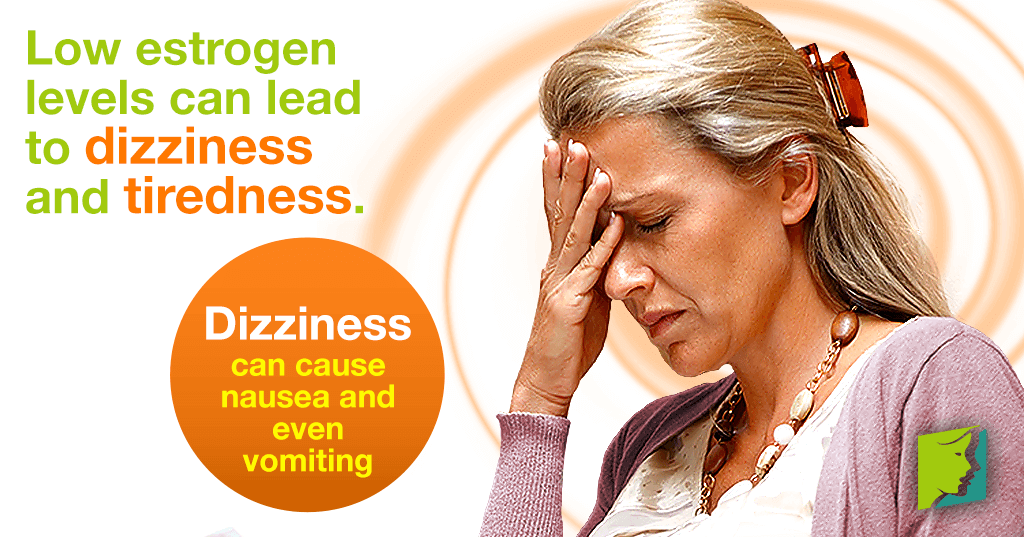Despite menopause's defining characteristic being the end of a woman's reproductive life, the process's side effects are individually noteworthy. Frequently experienced symptoms include hot flashes, night sweats, anxiety, mood swings, sore joints, forgetfulness, and digestive problems. Fatigue and dizziness, two more common symptoms of menopause, can be experienced in more intense doses in response to the occurrence of other symptoms. The experience of these symptoms can be immensely disturbing, as they often have a disruptive influence on a women's quality of life. Continue reading for tips on managing fatigue and dizziness.
What Is Fatigue?
Fatigue can be defined as extreme tiredness caused by high levels of mental or physical exertion. The sensation is characterized by an inability to function at the standard you are normally accustomed to.
What Is Dizziness?
Dizziness is described as the sensation of lightheadedness, wooziness, and the experience of spinning, floating, tilting, or whirling. Extreme cases are referred to as vertigo and are characterized by the feeling that you or your surroundings are moving when they remain motionless.
What Are the Causes of Fatigue and Dizziness?
The side effects of menopause are generally caused by a fluctuation in hormone levels. Below is a list of causes of menopausal fatigue and dizziness.
Estrogen deficiency. A lack of estrogen can cause insomnia and thus lead to fatigue, dizziness, mood swings, depression, and an inability to concentrate.
Progesterone deficiency. The decrease in progesterone during menopause can result in hormonal imbalance that lead to feelings of sickness and fatigue.
Hypothyroidism. Some women going through menopause develop problems with their thyroid, or a disorder called hypothyroidism. This can result in tiredness.
During menopause a woman's bones lose their ability to use calcium as efficiently as in the past. As the bones become progressively weaker, women often experience a slight energy loss. This is just one of the factors that contribute to what is commonly known as menopause fatigue.
Tips and Tricks for Dealing with Fatigue and Dizziness
Because menopause symptoms are often related to problems caused by hormonal imbalance and estrogen deficiency, to treat fatigue, dizziness, and the symptoms that exacerbate them, women should attempt to restore their hormonal balance. This can be achieved through natural means.
- Maintain a healthy diet, rich in soy and fiber.
- Engage in a sustainable exercise routine.
- Consider taking vitamin D and calcium supplements.
- Sit or lie down when you begin to feel dizzy.
- Avoid caffeine, alcohol, and tobacco. Excessive use of these substances can heighten your symptoms.
- Consider herbal remedies such as black cohosh, an herb that is said to act in similar ways to estrogen.
Continue reading for more specific information on the treatments for fatigue and dizziness
Sources
- Hutchinson, Susan M.D. "The Stages of a Woman's Life: Menstruation, Pregnancy, Nursing, Perimenopause, Menopause". November 2007.
- Love, Susan M.D. Menopause and Hormone Book. New York: Three Rivers Press, 2003.
- BMJ Group. "Menopause: What is it?" Patient Leaflet. 2007.




